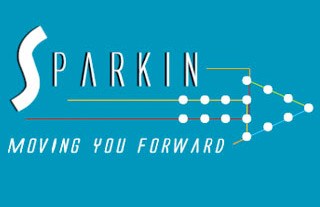Travel at Home..
‘Travel makes one modest. You see what a tiny place you occupy in the world’ (Gustav Flaubert)
So true Gustav, but living in the moment in your daily life also allows for quality of experience, engagement and thereafter, true understanding.
Beautiful Friday it is in NYC, happy weekends one and all.
#Living #Inthemoment #Understanding #Travelathome #SPARKIN
19th Derek Parkin Scholarship Winner
Congratulations Jules Shindel,the 19th recipient of the Derek Parkin Award of $1500 (plus $500 coaching).
The award goes to the most empathetic account planning graduate. Judged by the students (at Miami Ad School New York) on the course as well as the teachers, teaching the course, not the school, not me.
Of the 19 winners to date, 10 woman, 9 men.
#MiamiAdSchool #ParkinPrizeWin
19th Empathy Award (aka Parkin Scholarship)
What a stunningly beautiful morning in New York. Looking forward to presenting the 19th ‘Empathy’ (Parkin Scholarship) later today at Miami Ad School.
#Beautiful #NewYork #ParkinScholarship #EmpathyAward #Sparkinsearch
GDPR Policy Update
SPARKIN is committed to protecting and safeguarding your personal data. As part of this commitment, we’re updating our privacy policy to meet the standards set by European Data Protection law. We confirm that we have and will continue not to share your email with any third party without explicit agreement from you.
Sincerely,
Stuart
Don’t Play The Fool… How The Savvy Select Their Jobs
More and more workers are taking the view that they are the sole drivers of their careers in what Peter Murdock refers to as the new reality of employee loyalty, in which the workplace has become a transactional environment.
Given the new employment realities, as companies require ever greater flexibility, and when headcount forms the greatest part of business costs, this trend will continue. This explains why ‘75% of the causes of employee turnover are preventable,’ (Valerie Bolden-Barrett.’ HR DIVE 8/17).
‘Most employees see themselves as being hired to perform specific tasks and, once they feel they have mastered this role, they seek out a new opportunity,’ or companies decide to let them go.
The downside of regular job changes is being perceived as a ‘flight risk’ by the hiring manager, cynical of employees not prepared to provide the commitment that agencies aren’t typically themselves making. Arguably those risk averse hirers and cultures are the ones to avoid!
Truly smart employees are not only pivoting around task mastery but they are also pursuing career opportunities which they feel will allow for their broader personal growth. For the brighter ones this is about job variety and a personal desire to grow but for many it is seen as a necessity.
A 2016 Pew Research Center Survey ‘The State of American Jobs,’ highlighted that 87% of workers believed it will be essential to get training to develop new skills throughout their working lives simply in order to keep up with changes in the workplace.’
‘We’ve learned that what really effects people is their sense of how they are doing compared with others and their peer group.’ Brian Kropp, HBR.
Smart employees are not only focusing on skills areas to develop but are selecting business areas less easily supplanted by artificial intelligence, Think: Creativity/imagination/emotion/strategy/selling. They are also seeking to be challenged and to work with others and in cultures where their values culturally align.
Looking forward, will more individuals not simply think about skills and experiential development but think that the greatest job security (and personal growth) will be realized through envisioning new business opportunities in which they become their own bosses? Certainly the flexibility required by employers is increasingly making us all more focused on one business at least, that of our own careers.
The Ever Transactional Market for Strategic Talent – How The Savvy Strategists Select Their Jobs
We’ve all experienced the increasingly transactional nature of jobs in agencies. The constant firing and hiring of employees…Well welcome to the growth economy, to the project driven, short term focus, shareholder prioritized world of business.
Despite being some of the agency’s most valued employees, you strategists are increasingly being offered instead of full time work, permalance roles or opportunities with very specific tasks. Discussion of career is much less the norm.
What’s significant, is that knowing you have to manage your own careers, the smart amongst you are approaching the way you seek out new job opportunities with specific prioritization on opportunities that enhance your skills and experience. This is done with the understanding that anyone today can lose there job, any time. So, you want to ensure your expertise/experience continues to develop along the way, so you can compete with your peers when looking for the next job.
Arguably the brightest have always done this. The difference today is, failure to do this poses the real risks of falling behind your peers.
What skill or experience are you looking to develop in your next job?
- The State of American Jobs – 2016 Pew Center Survey
- The New Reality of Employee Loyalty – Forbes Leadership
- The Future of Human Work is Imagination, Creativity & Strategy – Harvard Business Review
- 2018 Recruiting Trends -Top 10 Trends to Watch – Pageup
- Top Jobs in 2025 and The Skills You Need to Get Them – Fast Company
- Top Ten Questions to Ask in Job Interviews – The Guardian
- 28 Questions to Ask at The End of Every Job Interview – Business Insider











